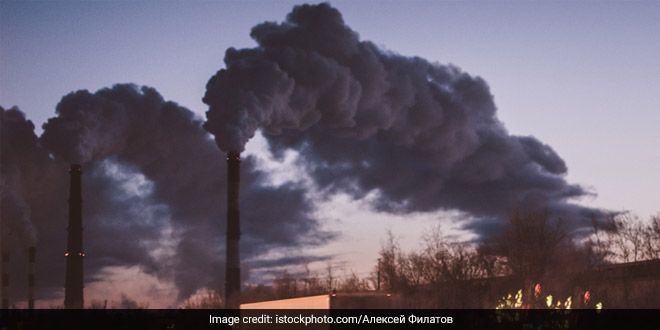Highlights
- Carbon dioxide is the main greenhouse gas responsible for global warming
- China was the only major economy whose emissions grew in 2020: Expert
- The world is returning to carbon-intensive business: Expert
Paris: Global energy-related carbon dioxide emissions rose slightly in December compared with the same month of 2019, indicating the sharp drop seen due to the pandemic was short-lived. Figures released Tuesday (March 2) by the International Energy Agency show emissions from the production and use of oil, gas and coal were 2 per cent higher in December 2020 than a year earlier. The Paris-based intergovernmental agency said a resurgence in economic activity coupled with a lack of clean energy policies mean many countries are now seeing higher emissions than before the coronavirus outbreak.
Fatih Birol, the agency’s executive director said,
The rebound in global carbon emissions toward the end of last year is a stark warning that not enough is being done to accelerate clean energy transitions worldwide. If governments don’t move quickly with the right energy policies, this could put at risk the world’s historic opportunity to make 2019 the definitive peak in global emissions.
Scientists have previously calculated that CO2 emissions fell by 7 per cent during the full year 2020 as people stayed at home because of the pandemic.
Our numbers show we are returning to carbon-intensive business-as-usual. These latest numbers are a sharp reminder of the immense challenge we face in rapidly transforming the global energy system, the director said.
Carbon dioxide is the main greenhouse gas responsible for global warming. Scientists say that in order to meet the Paris climate accord’s goal of keeping average temperatures from rising by 2 degrees Celsius — ideally no more than 1.5C — compared to pre-industrial times, man-made emissions of CO2 and other planet-heating gases need to reduced to near zero by mid-century. IEA figures show that China was the only major economy whose emissions grew in 2020, while those in the United States fell by 10 per cent compared to 2019. By December, U.S. energy emissions were close to the levels seen in the same month of 2019, the agency said, attributing this to economic recovery and greater coal use due to higher gas prices and colder weather.
Also Read: Carbon-Cutting Pledges By Countries Nowhere Near Enough: United Nations
(Except for the headline, this story has not been edited by NDTV staff and is published from a syndicated feed.)
NDTV – Dettol Banega Swasth India campaign is an extension of the five-year-old Banega Swachh India initiative helmed by Campaign Ambassador Amitabh Bachchan. It aims to spread awareness about critical health issues facing the country. In wake of the current COVID-19 pandemic, the need for WASH (Water, Sanitation and Hygiene) is reaffirmed as handwashing is one of the ways to prevent Coronavirus infection and other diseases. The campaign highlights the importance of nutrition and healthcare for women and children to prevent maternal and child mortality, fight malnutrition, stunting, wasting, anaemia and disease prevention through vaccines. Importance of programmes like Public Distribution System (PDS), Mid-day Meal Scheme, POSHAN Abhiyan and the role of Aganwadis and ASHA workers are also covered. Only a Swachh or clean India where toilets are used and open defecation free (ODF) status achieved as part of the Swachh Bharat Abhiyan launched by Prime Minister Narendra Modi in 2014, can eradicate diseases like diahorrea and become a Swasth or healthy India. The campaign will continue to cover issues like air pollution, waste management, plastic ban, manual scavenging and sanitation workers and menstrual hygiene.
[corona_data_new]



















